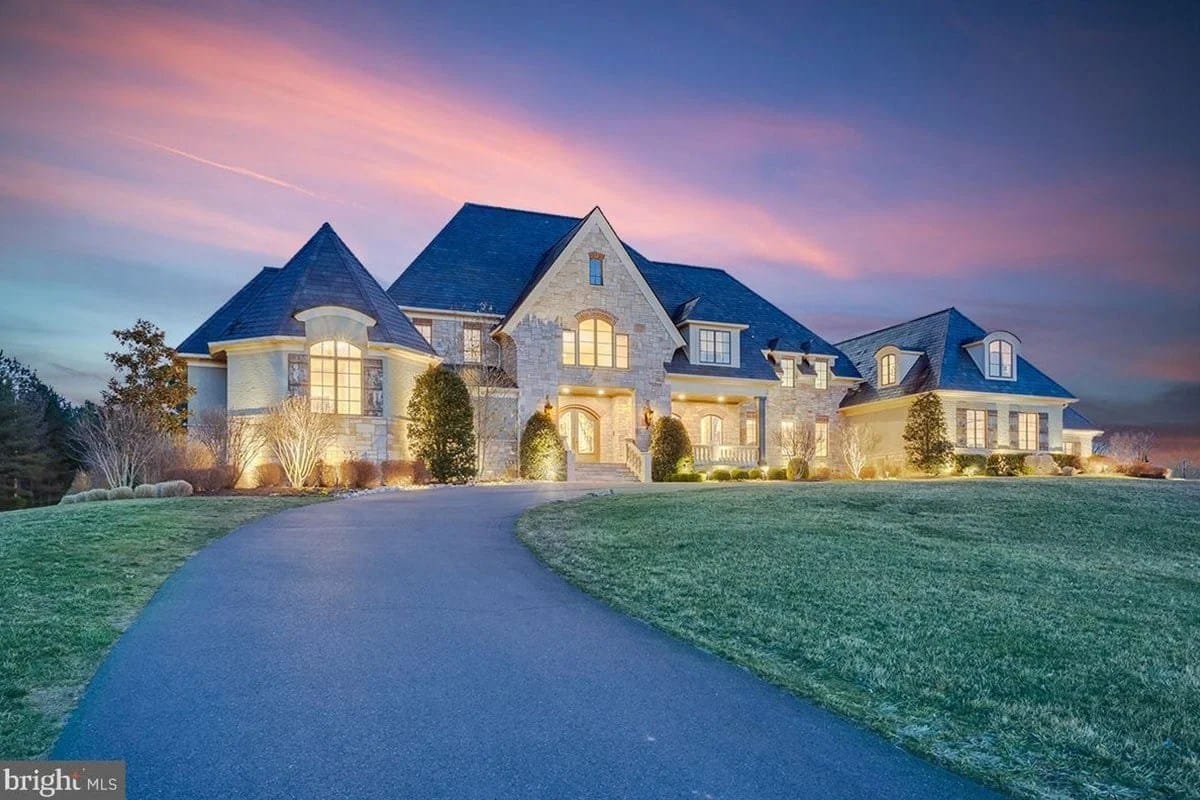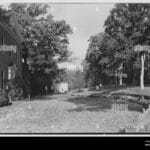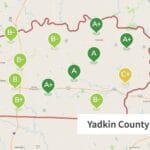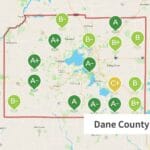Upperville, Virginia, a charming village nestled in the Piedmont region, offers a unique blend of equestrian history and architectural beauty. From the oldest horse show in the nation to beautifully preserved historic buildings, Upperville provides a captivating glimpse into Virginia’s rich heritage. If you plan a trip to Northern Virginia, make sure you add Upperville, Virginia to your itinerary.
Upperville: Where Equestrian History Comes Alive
Upperville’s connection to horses dates back centuries. The famed Upperville Colt & Horse Show, established in 1853, stands as the oldest horse show in America, showcasing the village’s enduring passion for equestrian pursuits. The thrilling Piedmont Point-to-Point races further enhance Upperville’s horse-centric culture, connecting generations of horse lovers. Numerous Thoroughbred breeding farms dot the landscape, contributing to the area’s reputation as a hub for some of the finest horses in the country. Each farm, often steeped in its own fascinating history, adds to Upperville’s unique charm.
Architectural Gems and Historic Preservation
Beyond its equestrian heritage, Upperville boasts a remarkable collection of preserved buildings within the Upperville Historic District, listed on the National Register of Historic Places. Trinity Episcopal Church, funded by philanthropist Paul Mellon, stands as a unique example of French Medieval architecture and serves as a social cornerstone of the community. Influential figures like Mellon and Sandy Lerner have played a significant role in shaping Upperville’s identity and preserving its architectural legacy. The annual Hunt Country Stable Tour provides a unique opportunity to explore some of the area’s most impressive horse farms, offering an inside look at the dedication and care that goes into maintaining these magnificent animals.
Warrenton: Fauquier County’s Historic Hub
Warrenton serves as the county seat of Fauquier County, Virginia, nestled within the Northern Virginia region and the Washington metropolitan area. Established in 1759, Fauquier County boasts a rich history, named after Virginia’s Lieutenant Governor, Francis Fauquier. With a population exceeding 10,000, Warrenton stands as a vibrant town located at the intersection of major routes: US 15, 17, 29, and 211. Fauquier County played a significant role in the Civil War, hosting numerous battles, including the Battles of Rappahannock Station, Thoroughfare Gap, and Upperville. To fully understand the political divisions that led to the Civil War, you should have a look at this sectionalism map first.
Warrenton’s Significance and Growth
Warrenton’s position as the county seat makes it a central hub for government and community activities. This prominence has contributed to its growth and development, attracting residents and businesses alike. Its strategic location at the crossroads of major highways has further enhanced its accessibility and economic vitality. Nearby towns like Remington, The Plains, and Upperville contribute to the rich tapestry of Fauquier County, offering diverse experiences for residents and visitors. The presence of elementary schools within Fauquier County adds to its appeal as a family-friendly community.
A Glimpse into Warrenton’s Past
Fauquier County’s involvement in the Civil War left an indelible mark on the region. Battles fought within the county, including those at Rappahannock Station and Thoroughfare Gap, shaped the landscape and the collective memory of the community. Ongoing research continues to reveal new details about these pivotal events, offering a deeper understanding of the past. The county’s rich history extends beyond the Civil War, encompassing indigenous settlements and colonial influences.
Francis Fauquier: The Man Behind the Name
Fauquier County, Virginia, honors Francis Fauquier, its namesake and the Lieutenant Governor of Virginia from 1758-1768, lauded by Thomas Jefferson as the “ablest man” to hold the office. Established in 1759 from Prince William County, Fauquier County’s naming pays tribute to Francis Fauquier, though a legend persists that he won the land in a poker game. This tale, while intriguing, remains unsubstantiated.
Fauquier’s Influence and Legacy
Francis Fauquier, whose name graces Virginia’s Fauquier County, served as Lieutenant Governor during a pivotal period in the colony’s history, shaping its governance leading up to the American Revolution. His leadership likely influenced important decisions and policies, shaping the colony’s future. Some historians suggest that his progressive views may have even contributed to the political climate that ultimately led to the revolution. Further research into his life and times could reveal more about his contributions and impact.
Early Inhabitants and Land Cession
Before European settlement, the area that would become Fauquier County was inhabited by indigenous peoples, including the Whonkentia (a Manahoac subgroup) documented by Captain John Smith in 1608. The Conoy tribe also camped near The Plains. The Six Nations later ceded the region to the Virginia Colony through the 1722 Treaty of Albany, paving the way for European colonization and the eventual establishment of Fauquier County.
Fauquier County: Size and Significance
Fauquier County, VA, encompasses 651 square miles, with 647 square miles of land and 3.8 square miles of water, making it slightly larger than the state of Rhode Island. Located in Northern Virginia, Fauquier County is part of the Washington metropolitan area, yet maintains a rural character with a 2020 population of 72,972. This balance of rural tranquility and proximity to urban amenities makes it a unique and desirable location.
A Historical Tapestry
Established in 1759, Fauquier County boasts a rich history, from its indigenous inhabitants to its role in the Civil War, reflected in its diverse communities like Warrenton, Upperville, and The Plains. The county’s size and varied landscape have contributed to its diverse history and cultural heritage. From rolling hills and farmland to charming small towns, Fauquier County offers a range of experiences for residents and visitors.
Beyond Upperville’s Equestrian Scene
While Upperville is known for its equestrian heritage, Fauquier County offers a broader appeal with a mix of historical sites, natural beauty, and proximity to Washington, D.C., driving exurban growth. This growth has led to changes in the county’s demographics and landscape, presenting both opportunities and challenges. Understanding these dynamics is essential to appreciating the complexities of Fauquier County’s evolution. The county continues to evolve, balancing its historical character with the demands of a growing population and changing economic landscape.
- Unlocking 2-Letter Words with U: The Definitive Guide - April 4, 2025
- Unlock Words with the Letters THREE: Top Unscramble Tools 2025 - April 4, 2025
- Master Scrabble: X & Z Words for High Scores - April 4, 2025

















2 thoughts on “Upperville, Fauquier County, VA: Exploring Virginia’s Historic Horse Country and Architectural Gems”
Comments are closed.